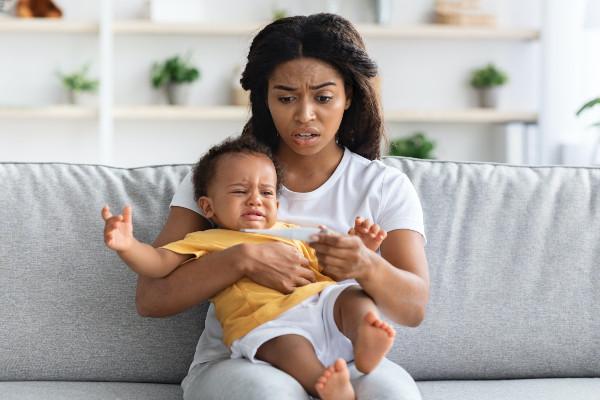Introduction
As a concerned parent, it’s crucial to understand the impact of meningitis and hearing loss on a child’s life. Meningitis, an inflammation of the membranes surrounding the brain and spinal cord, can lead to severe complications, including hearing loss. This comprehensive guide will explore the connection between meningitis and hearing loss, discuss prevention strategies, and provide solutions to help your child cope with this challenging situation. By staying informed and proactive, you can support your child in leading a healthy and fulfilling life.
Experience the world like never before with the RCA OTC Behind-the-Ear Hearing Aid. Our advanced digital technology ensures that every sound is crystal clear and vibrant, allowing you to fully immerse yourself in life’s experiences. Whether it’s the laughter of loved ones or the music that moves you, our hearing aid brings back the joy of every moment.
Say goodbye to the hassle of appointments and prescriptions. The RCA OTC Hearing Aid is designed to meet the needs of individuals without the need for a prescription. With its seamless setup and user-friendly design, you can effortlessly enhance your hearing abilities and stay connected to the world around you. Simply unpack, wear, and enjoy improved auditory perception instantly.
Experience optimal comfort and style with our discreet behind-the-ear design. The thin tube design allows you to wear glasses comfortably, so you can enjoy clear hearing while maintaining your personal sense of style. Plus, our rechargeable battery ensures long-lasting power, eliminating the inconvenience of constantly replacing small batteries. Elevate your hearing experience with the RCA OTC Hearing Aid and embrace the world with confidence.
The Link between Meningitis and Hearing Loss in Children
Meningitis is a serious infection that can have long-lasting effects on a child’s health. One of the most common complications of meningitis is hearing loss. When the membranes surrounding the brain and spinal cord become inflamed, the delicate structures within the inner ear can be damaged, leading to hearing impairment.
Hearing loss caused by meningitis can range from mild to severe, depending on the extent of the damage to the auditory nerve and inner ear structures. In some cases, the hearing loss may be temporary, but in other instances, it can be permanent. Early detection and intervention are crucial for minimizing the impact of meningitis-related hearing loss on a child’s development and overall well-being.
Recognizing the Symptoms of Meningitis and Hearing Loss
Being able to recognize the symptoms of meningitis is vital for seeking prompt medical attention and preventing complications like hearing loss. Common symptoms of meningitis in children include fever, headache, stiff neck, vomiting, sensitivity to light, and lethargy. In infants, meningitis may present as irritability, poor feeding, or a bulging fontanelle (the soft spot on the top of a baby’s head).
If your child has experienced meningitis, it’s essential to monitor their hearing closely. Signs of hearing loss in children may include difficulty understanding speech, frequently asking for repetition, turning up the volume on electronic devices, or not responding when called. If you notice any of these signs, consult your child’s healthcare provider to discuss potential next steps.
CBD for Tinnitus: Can It Stop the Ringing?
Importance of Vaccination in Preventing Meningitis and Hearing Loss
Vaccination plays a critical role in protecting your child from meningitis and its complications, such as hearing loss. The Centers for Disease Control and Prevention (CDC) recommends a series of vaccines to protect against the most common types of meningitis-causing bacteria. These vaccines include the Haemophilus influenzae type b (Hib) vaccine, the pneumococcal conjugate vaccine (PCV), and the meningococcal vaccine.
By following the recommended vaccination schedule, you can significantly reduce your child’s risk of contracting meningitis and experiencing hearing loss as a result. Speak with your child’s healthcare provider to ensure they are up-to-date with their vaccinations and discuss any concerns you may have.

Decoding Silence: An Analytical View on the Advances in Conductive Hearing Loss Research and Treatment
This analytical article sheds light on conductive hearing loss, offering an in-depth exploration of its genetic factors, treatment advances, and promising experimental therapies.

A Symphony Regained: Unraveling the Progress in Conductive Hearing Loss Research and Treatment
An enlightening narrative on conductive hearing loss, highlighting the latest research, potential treatments, and promising advancements in understanding its causes and combating it.
Managing Meningitis-Related Hearing Loss with Assistive Devices
If your child has experienced hearing loss as a result of meningitis, assistive devices can help improve their ability to hear and communicate. Depending on the severity of your child’s hearing loss, hearing aids or cochlear implants may be recommended.
Hearing aids amplify sounds and can be beneficial for children with mild to severe hearing loss. They come in various styles and can be customized to meet your child’s specific needs. Cochlear implants, on the other hand, are surgically implanted devices that directly stimulate the auditory nerve, bypassing the damaged inner ear. They are typically recommended for children with profound hearing loss who do not benefit from hearing aids.
Consult with an audiologist to determine the best course of action for your child and to learn more about available assistive devices.
Tinnitus: why it’s still such a mystery to science
Early Intervention and Support Services for Children with Hearing Loss
Early intervention is crucial for children with meningitis-related hearing loss to ensure they receive the necessary support for optimal development. Intervention programs may include speech therapy, auditory training, and language development services. These programs are designed to help children with hearing loss develop their listening, communication, and social skills.
In addition to professional intervention services, it’s essential to establish a strong support network for your child. This can include connecting with other families who have experienced meningitis and hearing loss, joining local support groups, and seeking guidance from healthcare professionals. By working together, you can help your child overcome the challenges associated with hearing loss and lead a fulfilling life.
Conclusion
In conclusion, understanding the relationship between meningitis and hearing loss is vital for concerned parents seeking to protect and support their children. First and foremost, recognizing the symptoms of both meningitis and hearing loss allows you to seek prompt medical attention and initiate appropriate interventions. Vaccination plays a crucial role in preventing meningitis, reducing the risk of complications like hearing loss. By following the recommended vaccination schedule, parents can significantly minimize the chances of their children experiencing these challenges.
Assistive devices, such as hearing aids and cochlear implants, can make a world of difference for children with meningitis-related hearing loss. These devices help improve communication and social interaction, promoting a higher quality of life. Early intervention programs, including speech therapy, auditory training, and language development services, further contribute to the overall well-being of children with hearing loss by addressing their specific needs and supporting their developmental progress.
Building a strong support network is an essential aspect of helping your child navigate the challenges associated with meningitis and hearing loss. Connecting with other families who have experienced similar situations, joining support groups, and working closely with healthcare professionals can provide valuable guidance and emotional support.
It’s important to remember that each child’s journey with meningitis and hearing loss is unique. As a concerned parent, your patience, understanding, and dedication to finding the right solutions for your child will be instrumental in their success. Stay informed about the latest developments in meningitis research and hearing loss treatments to ensure you’re providing the best possible care for your child.
In summary, dealing with meningitis and hearing loss can be a challenging experience for both children and their parents. By being proactive, staying informed, and seeking out the right resources, parents can play a pivotal role in helping their children overcome the obstacles associated with these conditions and lead happy, fulfilling lives.







